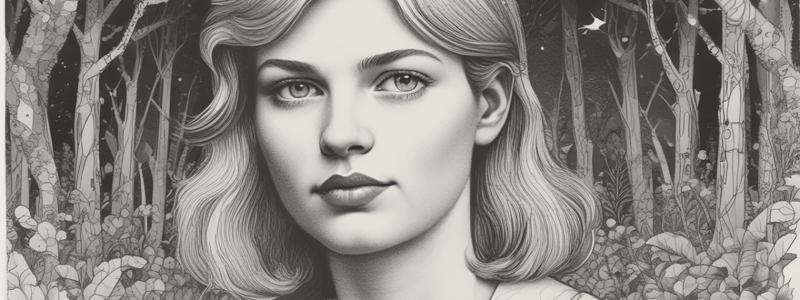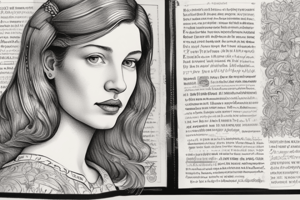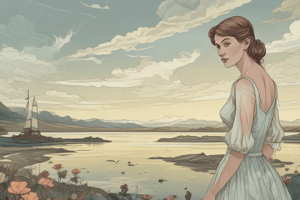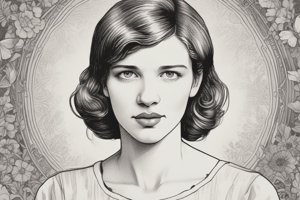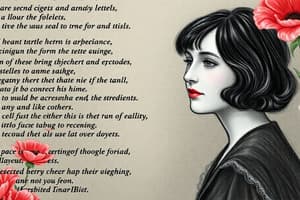Podcast
Questions and Answers
What tone does Plath convey through her phrase 'backtalk / from the mute sky'?
What tone does Plath convey through her phrase 'backtalk / from the mute sky'?
Honest and vulnerable
What is the 'enemy' that Plath fears in the poem?
What is the 'enemy' that Plath fears in the poem?
Neutrality
What does Plath wait for at the end of the poem?
What does Plath wait for at the end of the poem?
The rare, random descent or connection from the natural world
Study Notes
Poem Structure and Style
- The poem "Black Rook in Rainy Weather" consists of structured stanzas, each with five lines, except for the final line.
- The poem uses hidden rhymes, enjambment, and distinct caesurae to create a sense of pace and pause.
- The inclusion of sibilance and assonance adds a musical quality to the poem.
Themes and Ideas
- The poem explores the need for inspiration and the interplay between humanity and the natural world.
- The poem touches on the theme of divine power and the writer's process.
- The natural world has the capacity to inspire, but the speaker is aware of her fragile mental state.
Imagery and Symbolism
- The black rook is a symbol of the natural world and its ability to inspire.
- The use of pathetic fallacy creates a bleak and downtrodden mood.
- The speaker describes the black rook as "hunches" and "arranging and rearranging its feathers," conveying a sense of negativity.
Speaker's Tone and Perspective
- The speaker uses first-person narrative to introduce her thoughts and feelings.
- The speaker appears indifferent and unexpecting of inspiration from the natural world.
- The speaker desires inspiration, but is cautious not to place too much hope in it.
Connection with the Natural World
- The speaker describes the natural world as having the power to bestow "honor" or "love" upon her.
- The speaker longs for a connection with the natural world, but is aware of the possibility of disappointment.
- The poem suggests that inspiration can come from ordinary objects, making the mundane seem special.
Hope and Inspiration
- The poem expresses a desire for "a brief respite from fear of total neutrality."
- The speaker wishes to experience moments of inspiration, which are described as "miracles" or "tricks of radiance."
- The poem concludes with the speaker waiting for the "rare, random descent" of inspiration from the natural world.
Studying That Suits You
Use AI to generate personalized quizzes and flashcards to suit your learning preferences.
Description
Explore Sylvia Plath's poem, Black Rook in Rainy Weather, and its themes of inspiration, humanity, and nature, as well as her writing style and process.
